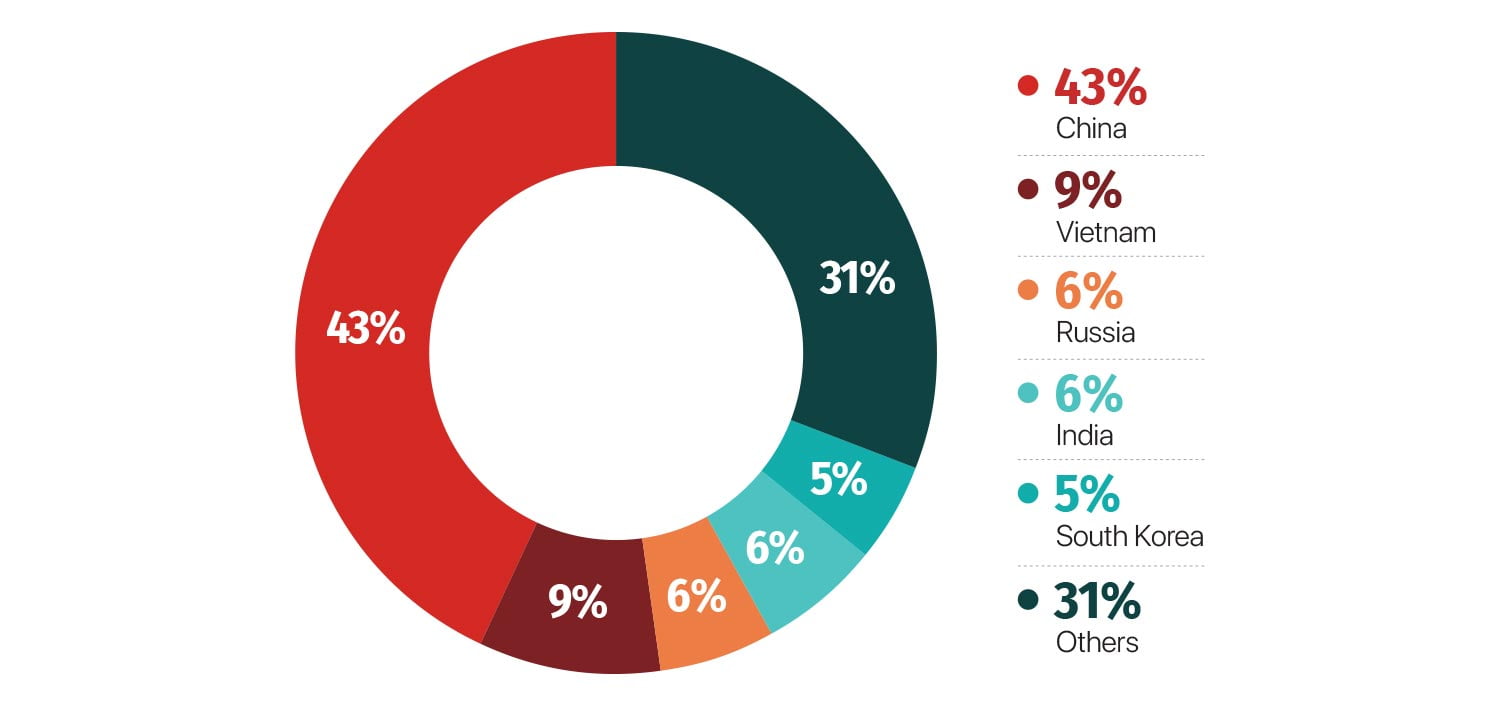About 5,700 citizens from 99 countries are working in Mongolia under labor contracts and voluntary work. The National Statistics Office reported that the number of foreigners working in Mongolia under labor contracts increased by 45.6 percent in the first quarter of this year compared to the fourth quarter of 2022. Among them, 43 percent are citizens of China, 8.9 percent are from South Korea, 8.9 percent are from Vietnam, and 6.4 percent are from Russia.
Employees with labor contracts, 2023 Q1
Furthermore, 16.6 percent of foreign workers fall in the age range of 35-39 years old. Foreign nationals working under labor contracts are mostly employed in the fields of mining, education, trade, and maintenance of automobiles and motorcycles. In the first quarter of 2023, the share of workers in the mining industry decreased to 29.4 percent, while the construction industry accounted for 11.3 percent.
However, the number of foreign employees in the education sector increased to 17.8 percent, while the number of employees in the wholesale and retail trade, automobile, and motorcycle maintenance industry increased to 11.6 percent.
About 5,700 citizens of 99 foreign countries are working in Mongolia under labor contracts and voluntary work. The National Statistics Office reported that the number of foreigners working in Mongolia under labor contracts increased by 45.6 percent in the first quarter of this year compared to the fourth quarter of 2022. This increase can be attributed to several factors, including economic factors, government policies, and industry developments.
One of the main reasons behind the increase in the number of foreigners working in Mongolia is the country’s growing economy. Mongolia has been experiencing economic growth in recent years, with various sectors such as mining, education, trade, and automobile/motorcycle maintenance showing significant growth. This has created a demand for skilled foreign workers in these industries, resulting in an increase in the number of foreigners employed under labor contracts.
In addition, government policies and initiatives aimed at attracting foreign investment and talent have also played a role in the increase of foreign workers in Mongolia. The Mongolian government has implemented measures to promote foreign investment, such as providing tax incentives, streamlined business registration processes, and creating special economic zones. These policies have encouraged foreign companies to invest in Mongolia and hire foreign workers to support their operations.
